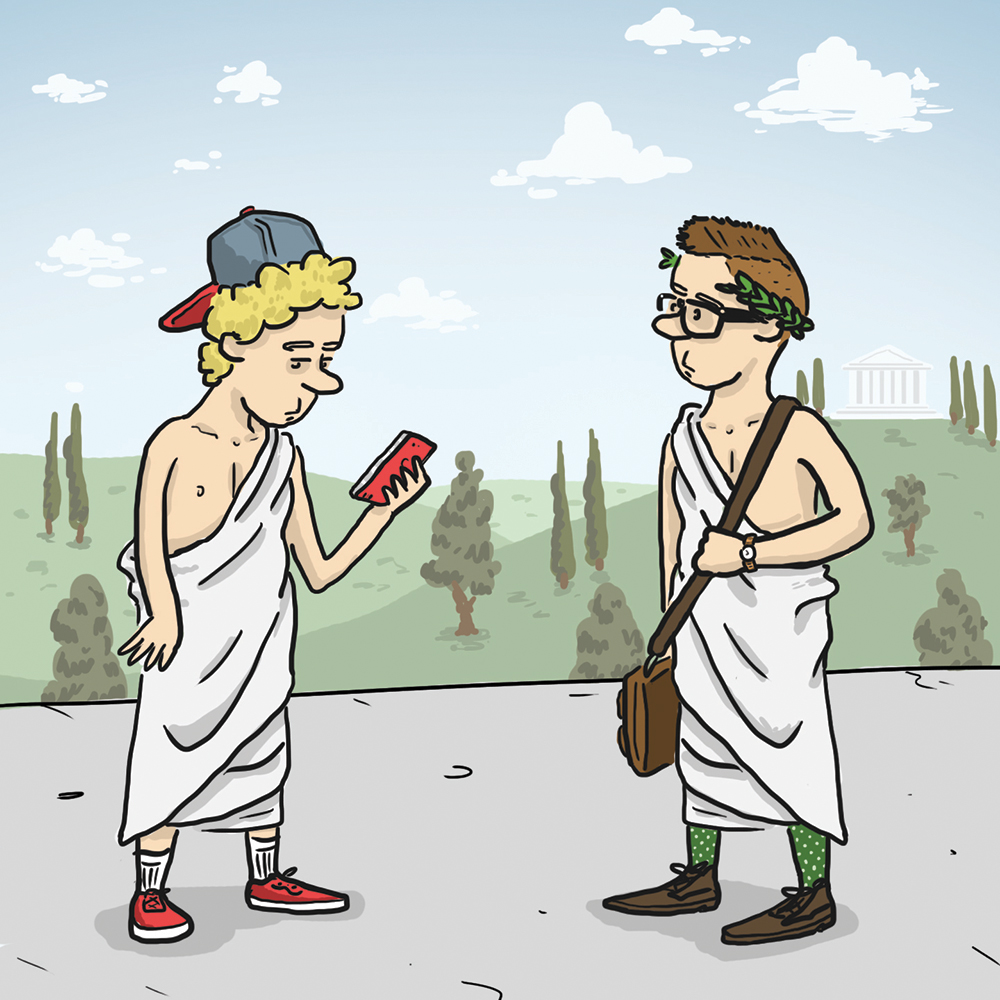“The ‘Millennials’ Are Coming” reads the ominous CBS News headline, warning employers of, “A new breed of American worker [who] is about to attack everything you hold sacred: from giving orders, to your starched white shirt and tie. They were raised by doting parents who told them they are special, played in little leagues with no winners or losers, or all winners.”
Me Me Me Generation
Millennials are the largest generation in the U.S., one-third of the total U.S. population in 2013, according to a White House report. But not only is the Internet generation the largest, it is also the favorite generation to criticize.
The CBS article is hardly an isolated case. Joel Stein in Time Magazine calls millennials the “Me Me Me Generation,” characterizing them as lazy, self-absorbed and coddled. An article in The Atlantic begins with, “We can all agree that millennials are the worst.”
CBS cites Marian Salzman, an ad agency executive who has managed and tracked millennials since they entered the workforce.
She states, “Some of them are the greatest generation. They’re more hardworking. They have these tools to get things done,” she explains. “They are enormously clever and resourceful. Some of the others are absolutely incorrigible. It’s their way or the highway. The rest of us are old, redundant, should be retired. How dare we come in, anyone over 30. Not only can’t [we] be trusted, can’t be counted upon to be, sort of, coherent.”
back to ancient Greece
Salzman essentially describes some individuals as polite and others are not. This does not seem like something unique to millennials. In every generation there are kind people and rude people, there are hard-workers and lazy bones.
This indicates the seemingly unique criticism of millennials is nothing new. The idea that youth are lazy and disrespectful towards authority goes back to ancient Greece.
Kenneth John Freeman in his 1907 Cambridge dissertation, when summarizing ancient Greek thought toward the youth, names the complaints of elders. “The young expect the same treatment as the old, and contradict them and quarrel with them. In fact, seniors have to flatter their juniors, in order not to be thought morose old dotards,” it reads.
Freeman continues, “The counts of the indictment are luxury, bad manners, contempt for authority, disrespect to elders and a love for chatter in place of exercise.”
indicative of human nature
Does this not sound like the same complaints baby boomers have against millennials? Freeman touches on adults’ complaints of youth’s tendency towards self-importance, not taking no for an answer, and the need to be coddled.
Clearly, these traits are indicative of human nature, not simply millennials. But as a generation who grew up with the Internet and a growing technology industry, these traits have grown in the public eye. But our unique relationship to the Internet also gives us an upper hand to enact positive change.
Stein, in his article calling millennials the “Me Me Me Generation,” still believes “[They] will save us all.” I would not go so far as to paint ourselves as saviors, but we have been given a privilege no other generation has had — the Internet — and we have the education, the creativity and the drive to bring positive change.







